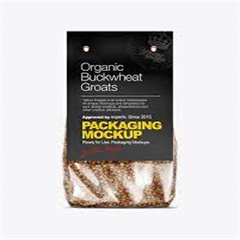In recent years, there have been various innovations and developments in the field of plastic bags to address their environmental impact. One significant area of innovation has been the development of biodegradable and eco-friendly alternatives. Here are some notable solutions:
- Biodegradable Plastic Bags: These bags are designed to break down more quickly in the environment compared to traditional plastic bags. They are typically made from materials such as cornstarch, potato starch, or other plant-based sources. While they do eventually decompose, the exact rate and conditions for decomposition can vary depending on the specific formulation and environmental factors.
- Compostable Bags: Compostable bags are designed to break down into natural materials, such as water, carbon dioxide, and organic matter, under specific composting conditions. These bags are often used for organic waste collection and can be composted along with food scraps and other organic matter.
- Paper Bags: Paper bags are a more eco-friendly alternative to plastic bags. They are biodegradable, recyclable, and made from renewable resources (trees). Many retailers have started offering paper bags as an option for customers.
- Reusable Bags: One of the most sustainable options is the use of reusable bags, which can be made from various materials like cotton, jute, or recycled plastic. These bags are designed for long-term use and can significantly reduce the need for single-use plastic bags.
- Cled materials, these bags help reduce the demand for new plastic production and decrease the environmental impact associated with extracting and processing virgin plastic.
- Bioplastics: Bioplastics are a category of plastics made from renewable sources like corn, sugarcane, or algae. Some bioplastics are designed to be biodegradable or compostable. However, it’s important to note that not all bioplastics are automatically eco-friendly, as their environmental impact can depend on various factors, including how they are disposed of and whether they compete with food crops for resources.
- Hybrid Solutions: Some companies are developing hybrid bags that combine traditional plastic with additives that enhance biodegradability. These bags are designed to break down more quickly than conventional plastic bags.
- Government Regulations: Many regions have implemented regulations and policies to reduce the use of single-use plastic bags. These regulations may include bans, taxes, or fees on plastic bags, which encourage consumers to opt for more sustainable alternatives.
- Consumer Education: Raising awareness and educating consumers about the environmental impact of plastic bags and the benefits of using alternatives is a critical part of reducing their use.
It’s important to consider that the effectiveness and environmental benefits of these solutions can vary. Biodegradable and compostable bags, for example, may only break down under specific conditions and may not provide a complete solution to plastic pollution if not disposed of properly. Therefore, it’s crucial to choose alternatives that align with local waste management systems and environmental goals.








